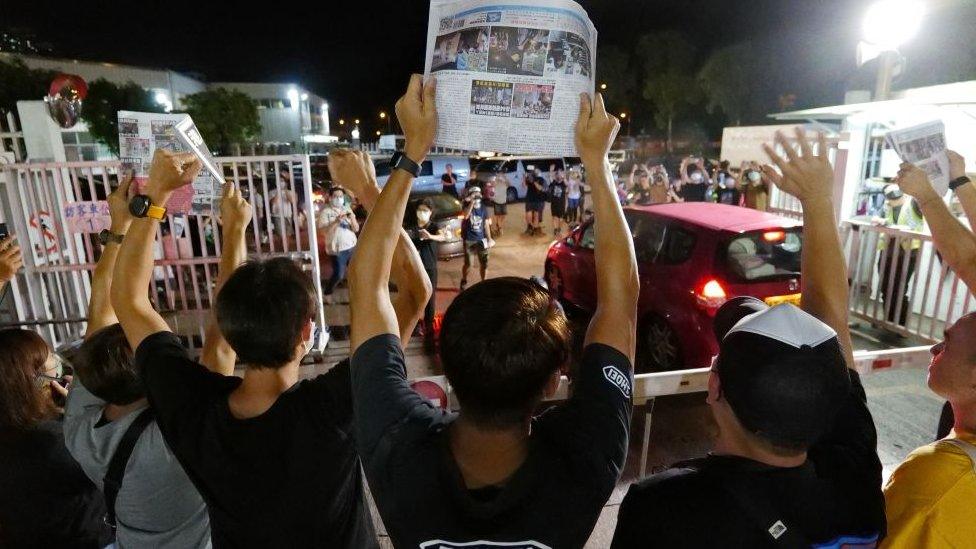Hong Kong's handover: How the UK returned it to China
- Published
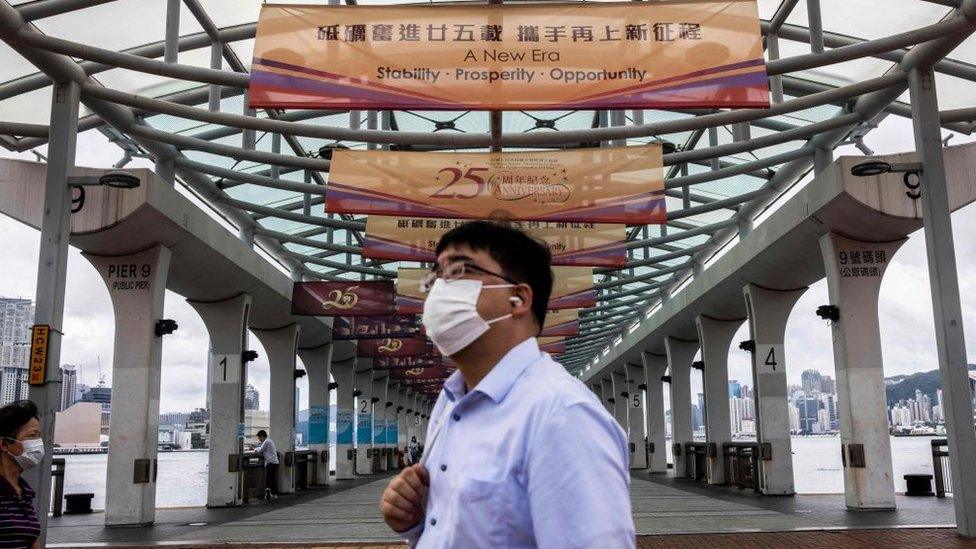
Hong Kong will commemorate the 25th anniversary of its handover from Britain to China on 1 July
Every year, on 1 July, Hong Kong marks the day where it was returned from British to Chinese control.
This year, the city will celebrate the 25th anniversary of the British handover - at a time when it's coming under increased Chinese control.
But what is Hong Kong's connection to Britain, when was it returned to China, and most importantly, what does its future look like?
Here's what you need to know:
What led to the handover?
Britain first took over Hong Kong island in 1842, after defeating China in the First Opium War. After the Second Opium War, Beijing was forced to also cede Kowloon in 1860, the area on the mainland opposite the island.
In 1898, to enforce its control of the area, the UK leased additional land, known as the New Territories, promising to return them to China in 99 years.
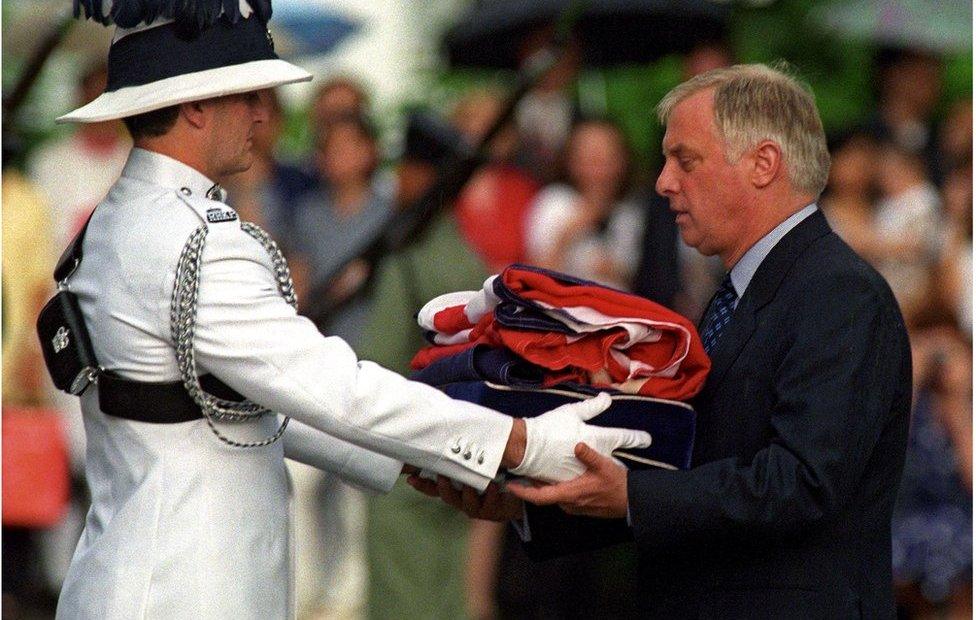
Britain's last governor of Hong Kong receives the Union Jack flag after it is lowered for the last time
Hong Kong developed rapidly under UK rule, becoming one of the world's major financial and business centres.
Then in 1982, London and Beijing began the difficult process of negotiating the territory's return to Chinese rule.
Hong Kong had developed a vastly different political and economic system from mainland China, which since 1949 had been under authoritarian one-party Communist rule.

Read more about Hong Kong since the handover:

What was agreed for the future of Hong Kong?
China agreed to govern Hong Kong under the principle of "one country, two systems", where the city would enjoy "a high degree of autonomy, except in foreign and defence affairs" for the next 50 years.
Hong Kong became a Special Administrative Region, and would retain certain freedoms, including:
an independent judiciary
multiple political parties
freedom of assembly and speech
The territory has its own mini-constitution - the Basic Law - that enshrines these rights.
It states that "the ultimate aim" is to elect the territory's leader, the chief executive, "by universal suffrage" and "in accordance with democratic procedures".
How is Hong Kong ruled now?
The leader is the chief executive, elected by a 1,500-member election committee.
The parliament is the Legislative Council (LegCo). It is made up half of directly elected representatives and half by representatives chosen by professional or special interest groups.
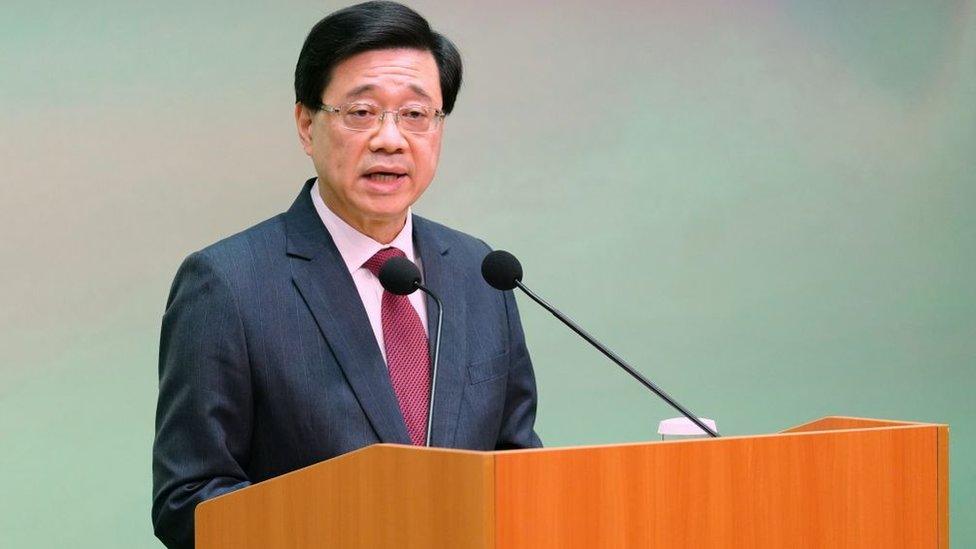
John Lee, a staunchly pro-Beijing supporter, was selected as Hong Kong's new chief executive in 2022
In 2021, in a sign of China's increasing influence, Beijing passed a resolution that fundamentally altered LegCo.
Under the new "patriots" law, all LegCo candidates must be vetted by a separate screening committee - making it easier to bar anyone deemed as being critical of Beijing.
It also drastically shrank the proportion of lawmakers who can be directly voted in by the people - from 50% to 22%.
As of 2022, nearly all of the LegCo members are pro-Beijing.
The city's chief executive elections also saw John Lee - a staunch Beijing supporter and the only candidate in the running- appointed to the role.
What's happened in Hong Kong since then?
Over the years, China has increasingly tightened its grip over Hong Kong.
The tipping point was 2019 when China proposed an extradition bill that could potentially allow HongKongers accused of of crimes to be tried in China.
Anger over the potential bill erupted into some of the largest protests Hong Kong had ever seen. Police forces responded to demonstrators with water cannons, rubber bullets and tear gas, exacerbating tensions between protesters and the government.
And on 1 July, protesters forced their way into parliament, tearing portraits down, smashing furniture, with one even raising the old British colonial flag.
In response, China passed the highly controversial National Security Law (NSL) in 2020 - it criminalised any act of secession, subversion, terrorism and collusion with foreign forces.
Beijing insists the law is necessary for bringing stability to the city, but critics argue its so loosely defined that it;s made it easier for Beijing to clamp down on protests and free speech.
Hundreds of protesters, activists and former opposition lawmakers have also been arrested since the introduction of the law.
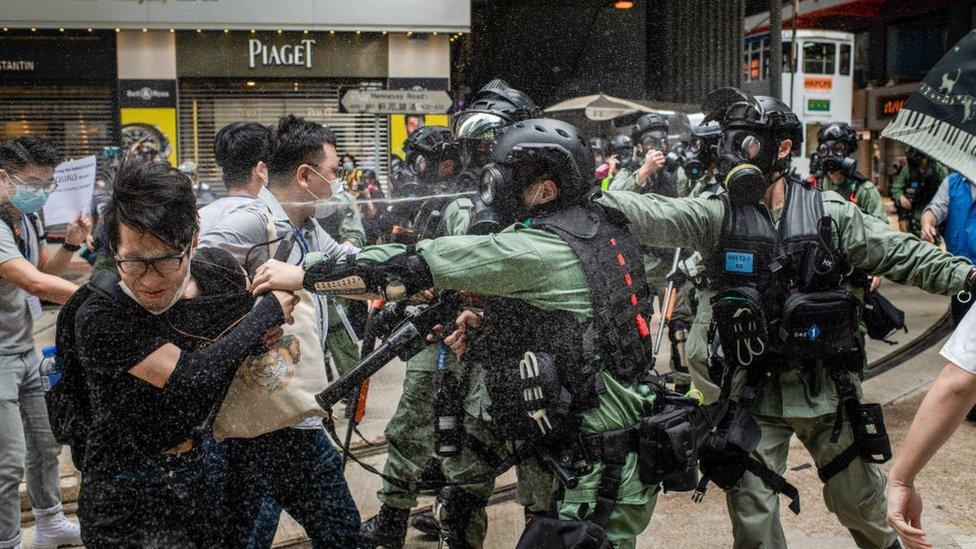
Protests against the national security law saw demonstrators being met with water cannons, tear gas and rubber bullets
Expressions of political dissent have also been notably muted since.
While 1 July has historically seen pro-democracy protests demanding universal suffrage and Hong Kong's autonomy, recent years have seen few public gatherings.
What will happen after 2047?
After 2047, mainland China is no longer obliged to grant Hong Kong the autonomy agreed on with Britain before the 1997 handover, leaving the city's fate unclear.
But one senior Beijing official said the governing principle of "one country, two systems" would not necessarily change come 2047.
"There is no need to change after 50 years," Shen Chunyao said at a legal conference in the weeks leading up to the 25th anniversary of the handover.
However, he suggested that "timely improvements" needed to be made, saying that otherwise "its potential cannot be achieved in the long run".
But others have taken a stronger stance.
"As an inalienable part of China, we cannot afford to be a country that undermines the security of China," said Regina Ip, one of Hong Kong's most well-known pro-Beijing lawmakers.
"If they don't think the current system is sustainable, the option will be to reintegrate Hong Kong, even before 2047."
Related topics
- Published19 March 2024
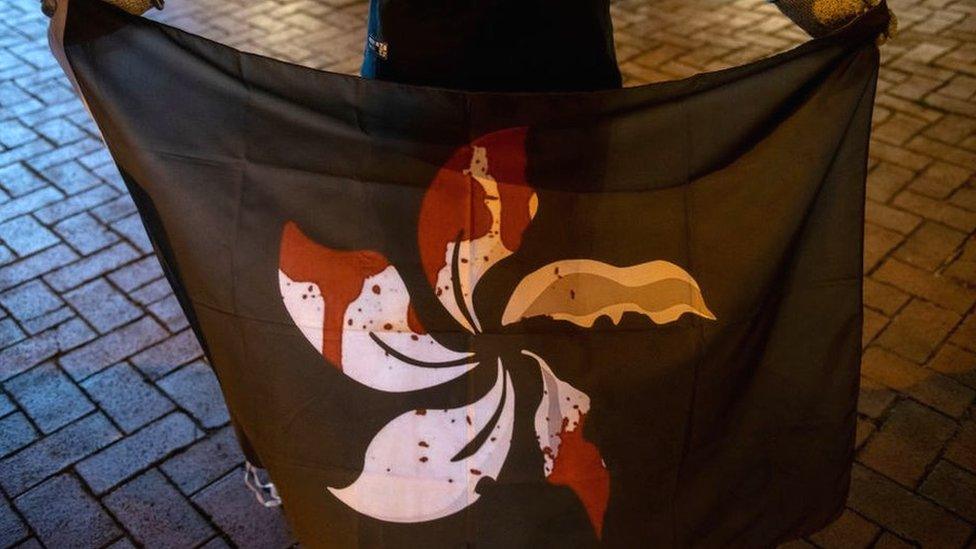
- Published1 July 2022
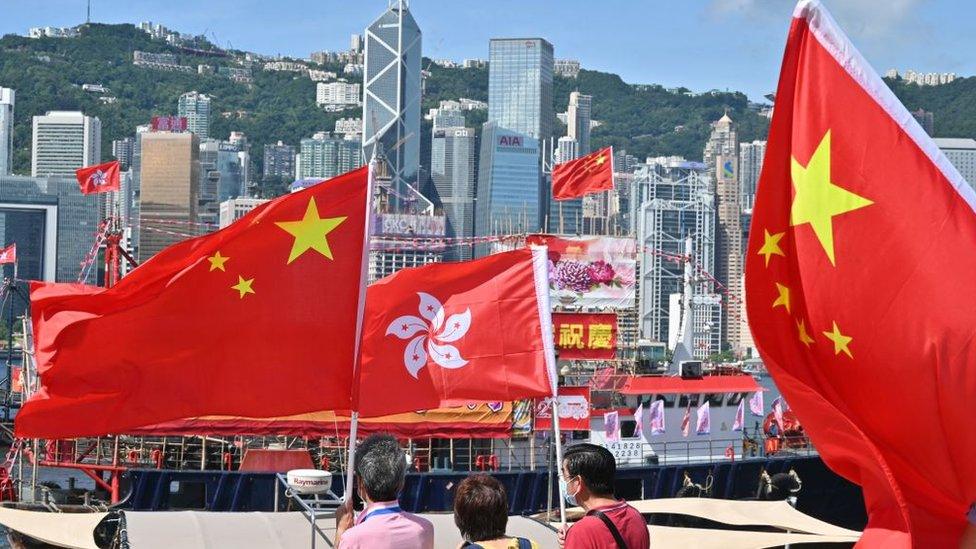
- Published28 June 2021
